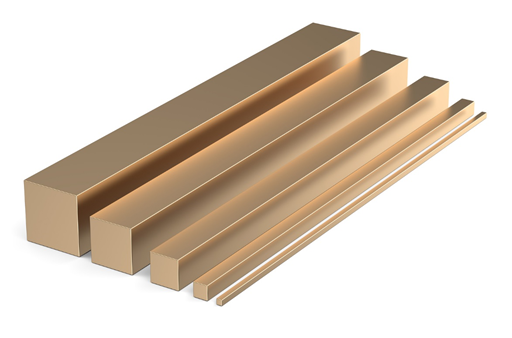Bronze is a metal alloy that typically consists of 88% copper and 12% tin, though many variations can be made in the composition and ratios of other added metals. Other metals added to the alloy can include nickel, zinc, aluminum, and manganese, while non-metals are sometimes added to the alloy. These non-metals include silicon, arsenic, and phosphorous. Rotax offers alloys with copper, zinc, and tin combinations.
Bronze, as an alloy, is stronger than copper alone. It has a high level of stiffness, ductility, and machinability. As they are typically very ductile alloys, most bronzes are considerably less brittle than cast iron. Due to its flexibility and strength, and the fact that it doesn’t make a spark when struck against hard surfaces, bronze is an extremely popular choice when it comes to the manufacture of wrenches, mallets, hammers, and other durable tools.
Due to its corrosion resistance, strength, and electrical conductivity, quality Bronze sheet metal is often used to make tough parts in many practical applications. For example, it is widely used in weather stripping, trim, and decorative hardware. It is also a very popular alloy used in the manufacture of bearings, chips, springs, and electrical connectors.
Bronze also has excellent formability, has very high weldability and solderability, and can be brazed. As a copper based alloy, bronze is generally about 10% denser than steel. Its corrosion resistance, especially against saltwater makes it a very popular material used in the manufacture of marine and aviation parts.
Bronze is a better conductor of heat and electricity than most steels and has a lower melting point than steel or iron. As it expands slightly just before setting, it is very popular for use in the manufacture of statues, and other items that use a mold for fabrication. The bronze will get right into the most detailed, minute spaces; places other metals or alloys cannot get to.
Quality bronze bars are also often melted down and made into musical instruments. Nearly all cymbals are made from bronze due to its desirable balance of durability and timbre. Bronze is also used for windings of steel and nylon strings for pianos and other instruments.
Due to its versatile physical, mechanical, and chemical properties, it is the metal of choice for decorative tiles, armor, and statues. In the hands of a skilled craftsman, the potential for bronze pieces supplied by reputable companies like Rotax Metals are practically endless.


